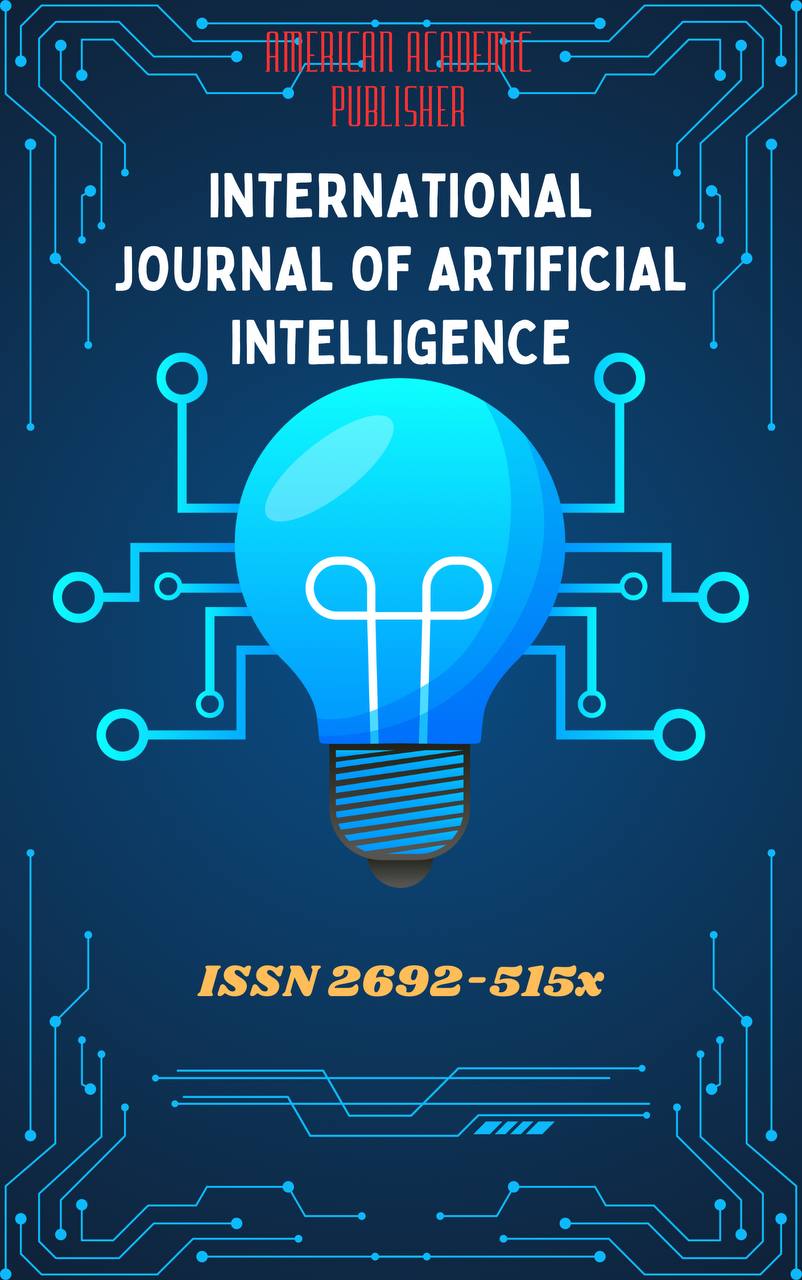 Articles
| Open Access |
Articles
| Open Access | NEEDS ANALYSIS AND CURRICULUM DEVELOPMENT IN ENGLISH FOR SPECIFIC PURPOSES (ESP)
Kholturaeva Guzal Uralovna , Tashkent State Agrarian UniversityAbstract
Needs analysis plays a crucial role in the development of an effective English for Specific Purposes (ESP) curriculum. By identifying the linguistic and professional needs of learners, educators can design targeted syllabi that enhance language acquisition in specialized fields. This paper explores the role of needs analysis in ESP, examining methodologies for data collection, stakeholder involvement, and curriculum design. Using a structured IMRAD approach, the study presents empirical findings from case studies, highlighting the significance of tailored instruction in ESP contexts. The implications for curriculum development emphasize adaptability, learner engagement, and the integration of industry-relevant materials.
Keywords
ESP, needs analysis, curriculum development, professional communication, language learning, specialized instruction.
References
Basturkmen, H. (2010). Developing courses in English for specific purposes. Palgrave Macmillan.
Dhabliya, D., Ugli, I. S. M., Murali, M. J., Abbas, A. H., & Gulbahor, U. (2023). Computer vision: Advances in image and video analysis. In E3S Web of Conferences (Vol. 399, p. 04045). EDP Sciences.
Bisht, Y. S., Alzubaidi, L. H., Gulbakhor, U., Yuvaraj, S., Saravanan, T., Kumar, R. S., & Dari, S. S. (2024). Legal Framework for Energy Transition: Balancing Innovation and Regulation. In E3S Web of Conferences (Vol. 540, p. 13015). EDP Sciences.
Uralova, G. (2023, September). SWOT TAHLILIDAN FOYDALANIB BO ‘LAJAK BOSHLANG ‘ICH SINF O ‘QITUVCHILARIDA EKOLOGIK-VALEOLOGIK MADANIYATNI RIVOJLANTIRISH. In International conference on multidisciplinary science (Vol. 1, No. 2, pp. 49-52).
Olimova, D. Z., & Turaeva, Z. A. (2022). The peculiar complexity of translating uzbek classical poetry into English.
Khamraeva, G., & Olimova, D. (2017). BENEFITS OF USING ROLE PLAYS IN TEACHING LANGUAGES. Научная дискуссия: инновации в современном мире, (4), 97-101.
Zokirovna, O. D. (2022). The specifics of translation actions in simultaneous interpreting. Middle European Scientific Bulletin, 22, 292-295.
Olimova, D. Z. (2021). Transfer of modality in translation (modal verbs and their equivalents, modal words). Middle European Scientific Bulletin, 12, 220-22.
Latifovna, I. G. (2025). EXAGGERATED REALITIES: THE FUNCTION OF HYPERBOLE IN JEAN RHYS’S “WIDE SARGASSO SEA” AS A REFLECTION OF COLONIAL TENSIONS AND PSYCHOLOGICAL TURMOIL. JOURNAL OF INTERNATIONAL SCIENTIFIC RESEARCH, 2(2), 323-326.
Latifovna, I. G. (2025). EPIPHANY: REVELATORY INSIGHTS IN JEAN RHYS’S “WIDE SARGASSO SEA. STUDYING THE PROGRESS OF SCIENCE AND ITS SHORTCOMINGS, 1(4), 248-251.
PULATOVA, M. (2024). KRISTOFER MARLO, ABDULLA ORIPOV VA PIRIMQUL QODIROV YARATGAN SOHIBQIRON TEMUR OBRAZLARINING QIYOSIY TAHLILI. News of the NUUz, 1(1.4), 332-336.
Pulatova, M. (2024, December). THE REPRESENTATION OF THE IMAGE OF AMIR TEMUR IN “SAKHIBKIRAN” BY ABDULLA ORIPOV. In INTERNATIONAL CONFERENCE ON MODERN DEVELOPMENT OF PEDAGOGY AND LINGUISTICS (Vol. 1, No. 11, pp. 20-24).
Temirovna, M. P. (2022). THE ANALYSES OF MAIN CHARACTER IN CHRISTOPHER MARLOWE’S TRAGEDY “TAMBURLAINE THE GREAT”. Yosh Tadqiqotchi Jurnali, 1(2), 230-234.
Gafurova, S. S., & Yusuphadjaeva, S. T. (2023). ANXIETY-PHOBIC DISORDERS IN IRRITABLE BOWEL SYNDROME AND THE EFFECTIVENESS OF PSYCHOTHERAPY AND PSYCHOPHARMACOTHERAPY. International Bulletin of Medical Sciences and Clinical Research, 3(1), 110-115.
Yusuphodjaeva, S. T., & Gafurova, S. S. (2023). Methods Of Cognitive-Behavioral Psychotherapy In The Treatment Of Rheumatoid Arthritis. Oriental renaissance: Innovative, educational, natural and social sciences, 3(1-2), 701-706.
Turdiyeva, D. Z., & Kh, O. G. (2022). LISTENING IS AN INTEGRAL PART OF COMMUNICATION PROCESS. Talqin va tadqiqotlar ilmiy-uslubiy jurnali, 3(5), 21-24.
Fattilloevna, K. G. (2021). Methods of Rendering Realias in the Translations of the Novel “Days Gone by” by Abdulla Qadiri. JournalNX, 7(09), 166-171.
Гафуров, Б. З. (2010). презентация фоностилистики в узбекском языкознании (на материале фоновариантов имен существительных). Journal of Modern Turkish Studies, 7(4), 68.
Mamatkulov, B., Nematov, A., Berdimuratov, D., & Tolipova, G. (2023). HEPATITIS A EPIDEMIOLOGY, HIGH-RISK GROUPS AND PREVENTIVE MEASURES (LITERATURE REVIEW). Science and innovation, 2(D5), 100-105.
Khaydarova, L., & Joanna, I. (2022). TEACHING ENGLISH GRAMMAR THROUGH INTERACTIVE METHODS. INNOVATIVE DEVELOPMENT IN THE GLOBAL SCIENCE, 1(3), 174-178.
Dudley-Evans, T., & St John, M. J. (1998). Developments in English for specific purposes: A multi-disciplinary approach. Cambridge University Press.
Hutchinson, T., & Waters, A. (1987). English for specific purposes: A learning-centred approach. Cambridge University Press.
Long, M. H. (2005). Second language needs analysis. Cambridge University Press.
Nation, I. S. P. (2013). Learning vocabulary in another language (2nd ed.). Cambridge University Press.
Richards, J. C. (2001). Curriculum development in language teaching. Cambridge University Press.
Wright, C., & Bolitho, R. (2007). ESP in theory and practice. Oxford University Press.
Article Statistics
Downloads
Copyright License

This work is licensed under a Creative Commons Attribution 4.0 International License.

